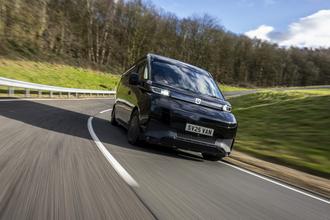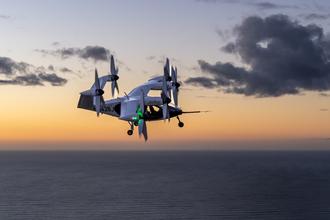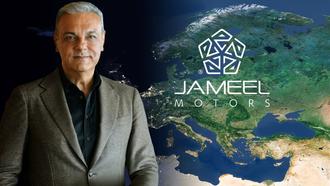Building electric dreams in Türkiye

A Q&A with Ismail Ergun, General Manager of BYD Türkiye, who is leading the brand’s rapid growth in the country
BYD, a leading global manufacturer of new energy vehicles (plug in hybrid and electric), is one of the fastest-growing automotive brands in the Turkish market. In little more than 18 months, BYD has gone from a standing start to become the eighth largest automotive brand in Türkiye, with around 4.6% market share, and the leader in the combined EV and PHEV market.
In November 2024, the company underwent a hugely successful relaunch and expanded its product range in Türkiye to six models by adding four new models to its existing lineup. ‘ALJ | Türkiye’, part of Jameel Motors, is the official distributor of BYD in the country. We caught up with Ismail Ergun, General Manager of BYD Türkiye, to talk about the EV market in Türkiye, the perception of Chinese EV brands, BYD’s success to date and the brand’s plans for the future.
What are the key characteristics of the automotive market in Türkiye today?
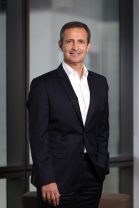
BYD Türkiye
A: Türkiye is a significant automotive market in Europe. It’s the sixth-largest market for passenger cars and fourth-largest for light commercial vehicles (LCVs), based on 2024 data of ACEA. The combined passenger car/LCV market achieved record-breaking sales of more than 1.2 million vehicles in 2024.
Geographically, Türkiye acts as a strategic bridge between Europe and Asia and is part of the EU customs union. This is one of the reasons why major automotive manufacturers such as Toyota, Hyundai, Renault, and FIAT have all invested in the country.
Türkiye’s market potential is highlighted by its current ranking of 23rd in Europe for vehicles per thousand people, suggesting substantial room for growth. This is further supported by the country’s young population, with an average age of 33.5 years (compared to Europe’s 45-year average) suggesting a growing car-buying demographic for years to come.
The market has strong domestic production capabilities, with 7 of the top 10 models being locally produced. This local manufacturing presence will be further strengthened when BYD’s planned production facility begins operations in 2026.
How has the Turkish automotive market evolved, particularly regarding EVs?
A: The Electric Vehicle (EV) market in Türkiye has experienced remarkable growth over the past few years. Starting from a modest 1.1% market share in 2022, EV adoption jumped to 7% in 2023. By the end of 2024, the overall EV market share had reached 10%, with particularly strong performance in the final quarter where it exceeded 13%, peaking at 16% in December. This trajectory suggests Türkiye will soon reach the European average of around 15% EV market share.
The market’s evolution is particularly evident in recent sales data. By December 2024, Türkiye’s EV market had matured to include 32 different brands, with a clear hierarchy emerging: TOGG (Türkiye’nin Otomobili Girişim Grubu – a Turkish EV manufacturer) leading with 26.5% of pure EV sales, followed by BYD at 11.7% and Tesla at 10.7%. Alongside EV growth, there has been a significant shift in consumer preferences toward SUVs, with their market share expanding to 56% by the end of 2024 – more than triple the share seen in 2016.
The PHEV (Plug-in Hybrid Electric Vehicle) segment is also expected to grow significantly to around 6% in 2025 as new players enter the market. BYD’s Seal U DM-i model, launched in April 2024, was the first volume PHEV model to enter the Turkish market. And it maintained a clear leadership in the PHEV segment throughout 2024 and into the first month of 2025.
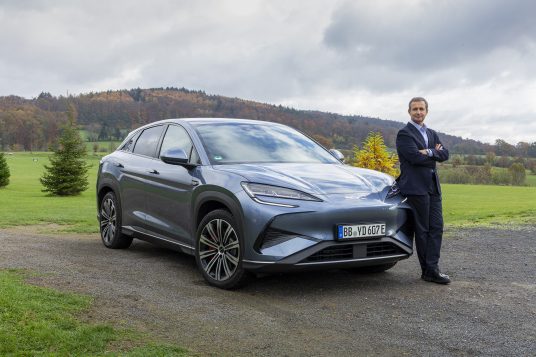
How supportive is the Turkish government of EV adoption?
A: The government has implemented several supportive measures for EVs. On the taxation front, EVs enjoy a significant advantage with Special Consumption Tax (SCT) starting at just 10%, (vs. 80% for ICE vehicles). The government has also reduced PHEV taxation from 80% to 30%, making these vehicles more affordable.
Infrastructure development has also seen substantial progress, driven partly by support for the local TOGG brand. The number of charging points has grown dramatically from 3,000 in 2023 to over 25,000 in 2024, with a government target of 250,000 charging points by 2030. There are now more than 160 certified charging network companies operating in Türkiye.
How do you see the balance between EVs and PHEVs developing in Türkiye?
A: While we expect both segments to grow, PHEVs are likely to show a stronger growth trend than pure EVs in the near term, serving as a transition technology from ICE and hybrid models to full EVs. In China, BYD’s sales mix is approximately 50-50 between PHEV and EV. We expect a similar balance in Türkiye, though this will be influenced by our model lineup – currently only one of the six models we offer in Türkiye is a PHEV.

How do EV prices compare to ICE vehicles in Türkiye?
A: Due to Türkiye’s tax structure, EVs actually have a price advantage in the market. BYD’s D-segment models – D-segment refers to mid-size or large family cars – are more accessible than other D-segment vehicles, and in some cases, EV vehicles are even more affordable than some C-segment (compact or small family car) ICE engine cars. This differs from markets like the UK where EVs tend to be more expensive than traditional vehicles. The price advantage in Türkiye stems from the significant tax differential I mentioned – 80% for ICE vehicles versus 10% for EVs – though it’s worth noting that regulations can change quickly.
How are Chinese EV brands perceived in Türkiye? How does BYD differ?
A: Turkish customers primarily view Chinese brands through the lens of their technological capabilities. BYD stands out from other Chinese manufacturers as the world’s leading NEV producer, giving it a strong advantage and wider acceptance in Turkey. Additionally, the strength of local representation and dealer investments play a key role, where ALJ differentiates itself with its strong reputation.
The combination of high-quality products and affordable prices of BYD has resonated well with consumers, who appreciate getting fully-equipped vehicles with high-level specifications at competitive prices. BYD, in particular, is more than just an automotive company – it’s a technology company with significant investments in railways and solar energy, employing over 120,000 R&D engineers across 11 research institutes. The company’s innovation credentials, including 45 patent applications per workday and a €13 billion investment in smart automotive systems, have helped establish the brand as a modern, innovative business focused on future technologies.
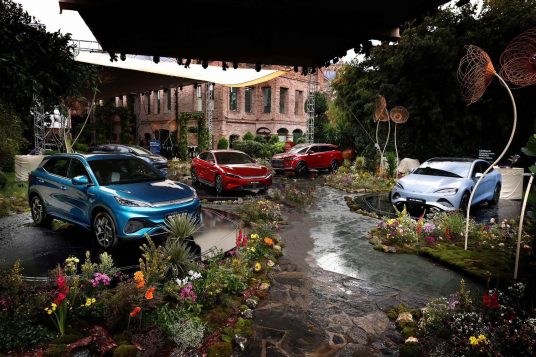
BYD distinguishes itself by its origins as a battery manufacturer rather than a car producer. Battery technology is at the heart of the EV business, and many major OEMs, including key competitors, utilize BYD’s technology. BYD’s use of LFP (lithium iron phosphate) batteries instead of NCM (lithium nickel/manganese/cobalt oxide) technology also offers advantages in safety and longevity, while its blade battery technology addresses capacity challenges. All these factors contribute to BYD’s differentiation from other Chinese brands in Turkey.
When and how did BYD enter the Turkish market?
A: BYD’s journey in Türkiye began with an initial brand launch in September 2023, followed by the introduction of its first model, the ATTO 3, in November, 2023. The company faced early challenges due to government regulations but continued its expansion, launching the Seal U DM-i – its first PHEV in Europe – in April 2024. BYD conducted a significant relaunch in November 2024, where we expanded the lineup to six models, introducing four new vehicles alongside two existing ones.
What attracted BYD to the Turkish market?
A: Turkish customers tend to be early adopters of new technology. And BYD’s position as a global leader in the New Energy Vehicle (NEV) market has resonated with consumers. Our marketing team’s successful launch efforts have significantly increased brand awareness, and customers have responded positively to both the new technology and the models themselves.
BYD’s brand promise of “premium affordable” has proven to be a perfect match for the market, with the actual customer experience aligning with this promise. We introduce all models at a high specification level, and customers appreciate both the quality and the brand. As the global leader in this sector, customers are increasingly considering BYD. This is borne out by the test drive experience, which usually impresses customers and often leads to a sale.
What initial success has BYD achieved in Türkiye?
A: BYD’s market performance, particularly following our November 2024 relaunch, has been remarkable. In just 32 days, the company sold 6,600 vehicles and generated over 38,000 customer leads. By December 2024, BYD had secured 4.6% of the total passenger car market with 6,194 units, placing it eighth among all automotive brands.
BYD became the market leader in the combined EV and PHEV (NEV) market in December 2024 with a 23.9% market share, surpassing both the local brand TOGG and Tesla. In the PHEV segment, BYD dominated with an unprecedented 85.8% market share, while achieving second place in pure EVs with 11.7% market share.
Individual models have achieved significant success in their particular segments. The BYD Dolphin became the best-selling EV model in the hatchback market in December 2024, while the ATTO 3 secured third place in the C-SUV EV market for 2024. The SEAL U, available in both EV and DM-i versions, led the D-SUV segment, while the SEAL and HAN models dominated the AWD-Sedan EV market, taking the top two positions.
BYD models continued to maintain their success from December 2024 into January 2025. BYD became the leader of the NEV market (37% market share), ranked second in the electric vehicle (16.7% market share) and secured the top position in the PHEV market (75% market share). In the Turkish passenger car market, BYD ranked sixth with a 4.9% market share in January 2025. The BYD Dolphin remained the best-selling EV model in the hatchback segment. The ATTO 3 moved up from third place to second in the C-SUV EV segment in January 2025. Available in both EV and DM-i versions, the SEAL U, which had already achieved leadership in the D-SUV segment in December 2024, became the leader in the entire SUV segment in January 2025. The SEAL model was the best-selling AWD-Sedan EV. The BYD HAN ranked as the third most preferred EV in the E-Sedan category.
What are BYD’s plans for 2025 in Türkiye?
A: A key focus is expanding our dealer network, which grew from just four dealers in November 2023 to 22 dealers by December 2024. Our aim is to reach 45-50 dealers by the end of 2025. This dealer expansion will support BYD’s ambitious sales target of 50,000 units in 2025, a significant increase from 8,331 units in 2024 and 839 units in 2023. We will also introduce some new models in 2025.
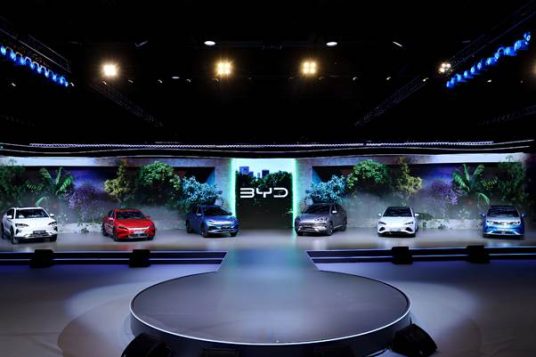
Why did BYD choose Abdul Latif Jameel as its partner in Türkiye?
A: Abdul Latif Jameel’s 16+ years of experience in Türkiye’s automotive sector, and over 70 years in automotive distribution, which is their core business, made them a very attractive partner. What is today ‘Jameel Motors’ has a proven track record not only in Türkiye but globally, particularly through their successful partnership with Toyota since 1955.
BYD was particularly impressed by Abdul Latif Jameel’s strong relationships with customers and dealers, and their reputation for fair and just management of their business partnerships. This reputation has helped attract dealer candidates, who are drawn both to BYD’s strong brand and Abdul Latif Jameel’s internationally respected reputation as a distributor.
What recognition has BYD received in the Turkish market?
A: After overcoming some initial challenges, BYD has received numerous awards and accolades in Türkiye. In the automotive sector, these include a Bronze Effie Award for best automotive company, and a Crystal Apple Award for best radio advertisement in the automotive category. The company also received an award from the Automotive Distributor Association (ODMD) for best radio advertising campaign, winning the ODMD Gladiator Award for “Best Radio Application.”
The company’s launch strategy has been particularly well-received, earning BYD the prestigious Ace of MICE Award for “Best Launch Event.” The company has also received a sustainability award for its environmental initiatives.
These accolades have helped strengthen BYD’s brand presence and raise awareness in the Turkish market, contributing to the company’s growing success in the region.
Moreover, BYD Türkiye has been honoured with two prestigious awards from BYD Global. The first is the ‘Best Aftersales Operation Deployment Speed’ award, recognizing our excellence in aftersales services. The second is the ‘Best Growth’ award, which we received for our outstanding sales performance in 2024 within the European markets.”
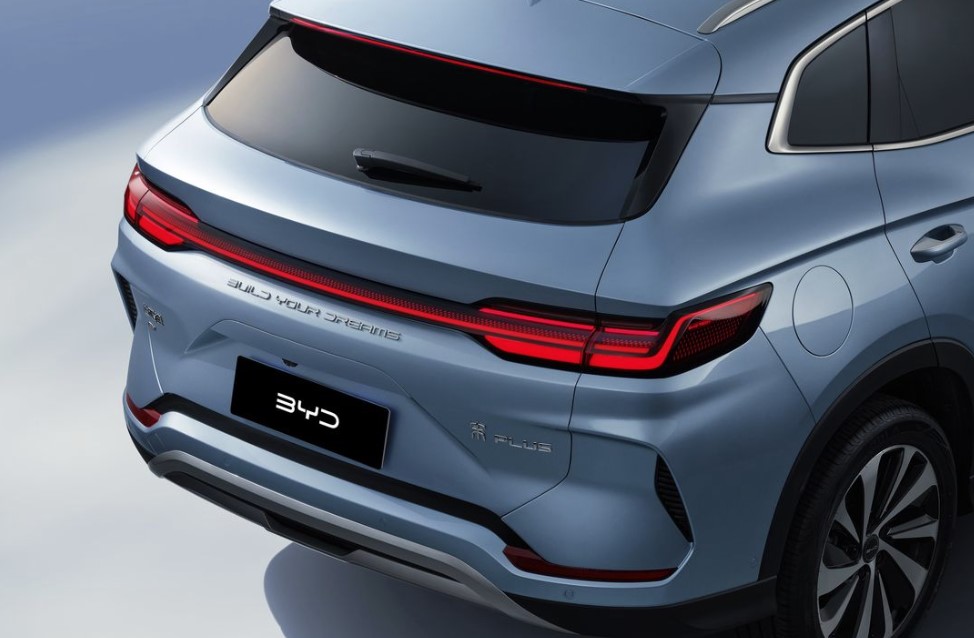
What is your outlook for EV market growth in Türkiye?
A: While we expect continued growth, it’s likely to be more measured than the dramatic jumps we’ve seen in recent years – from 1% to 7% to 15%. For 2025, we anticipate growth from 10% to around 15%, potentially reaching 20% in the following year. We expect Türkiye to reach European EV market levels in 2025.
